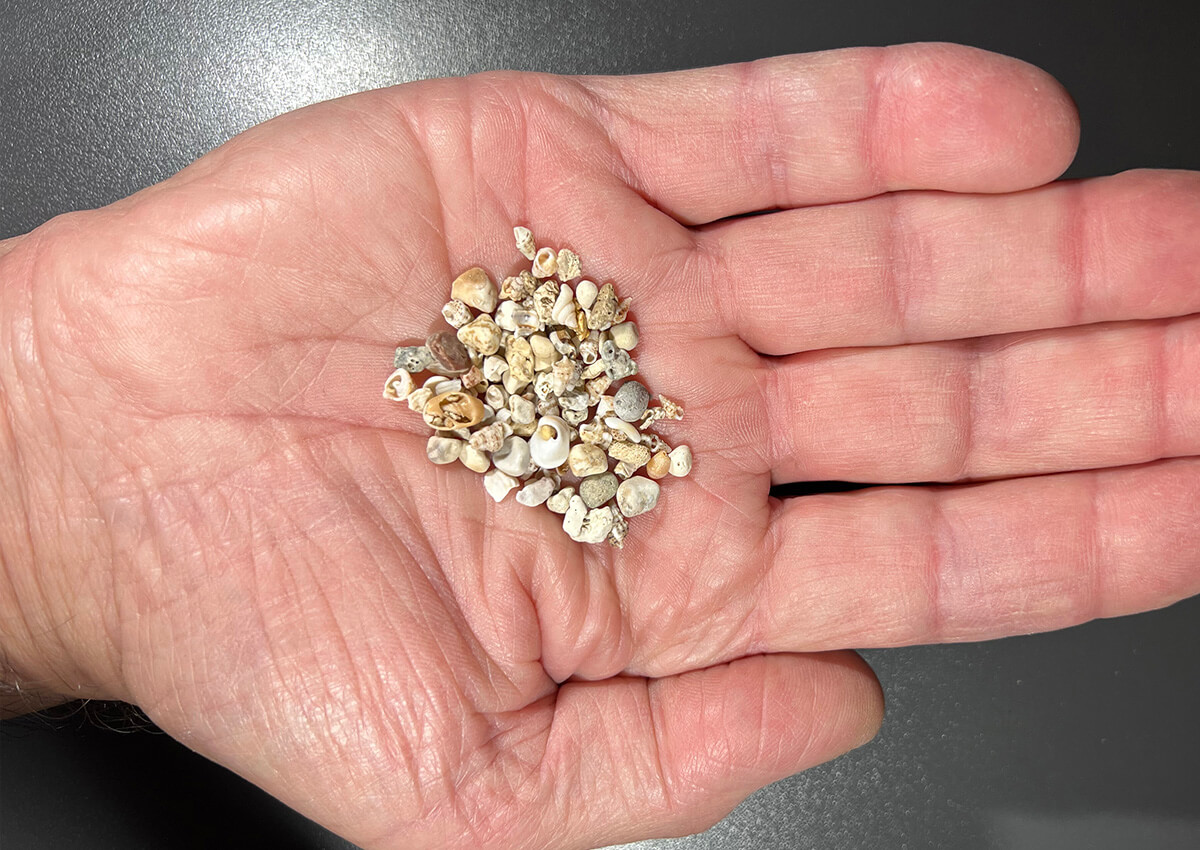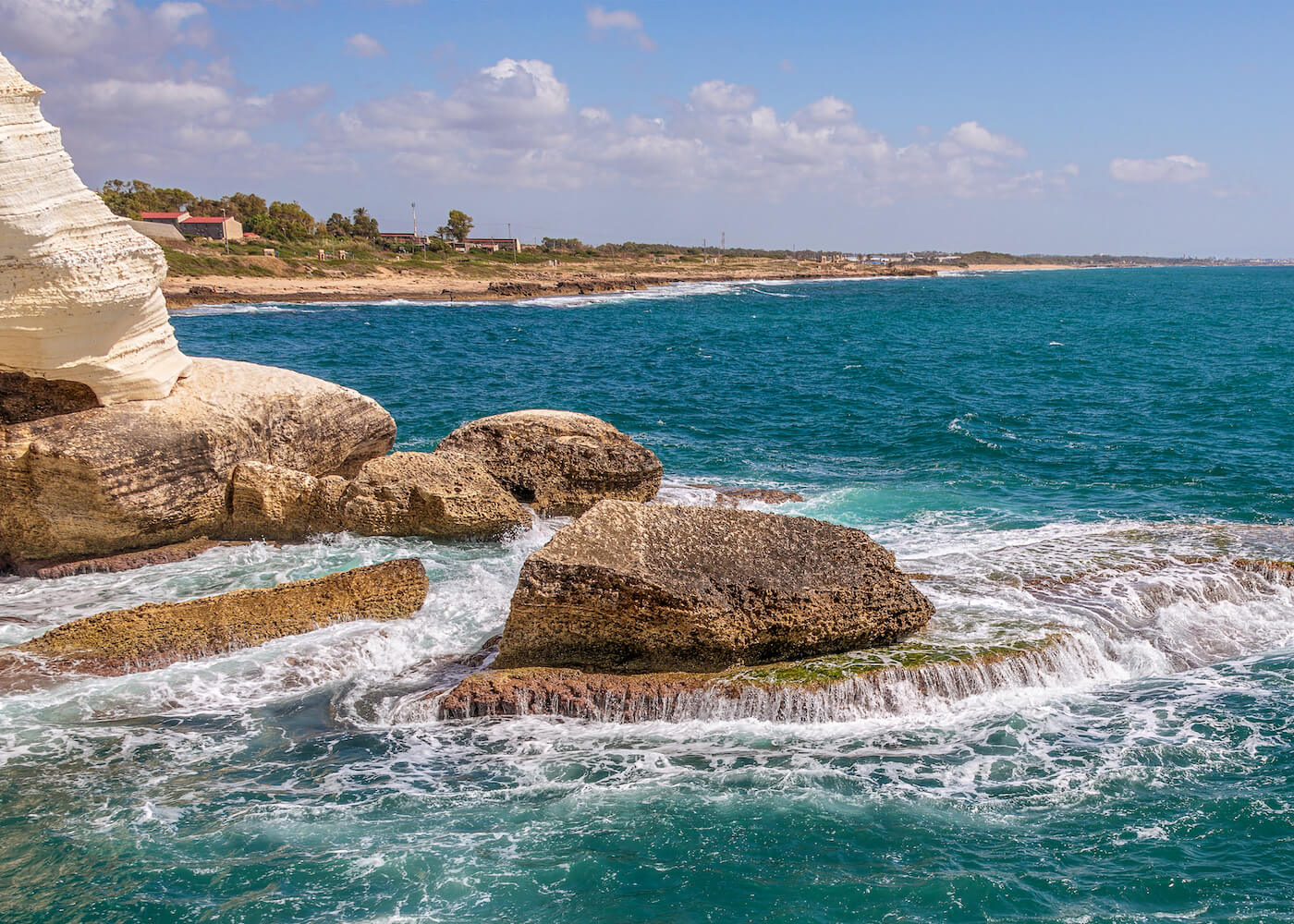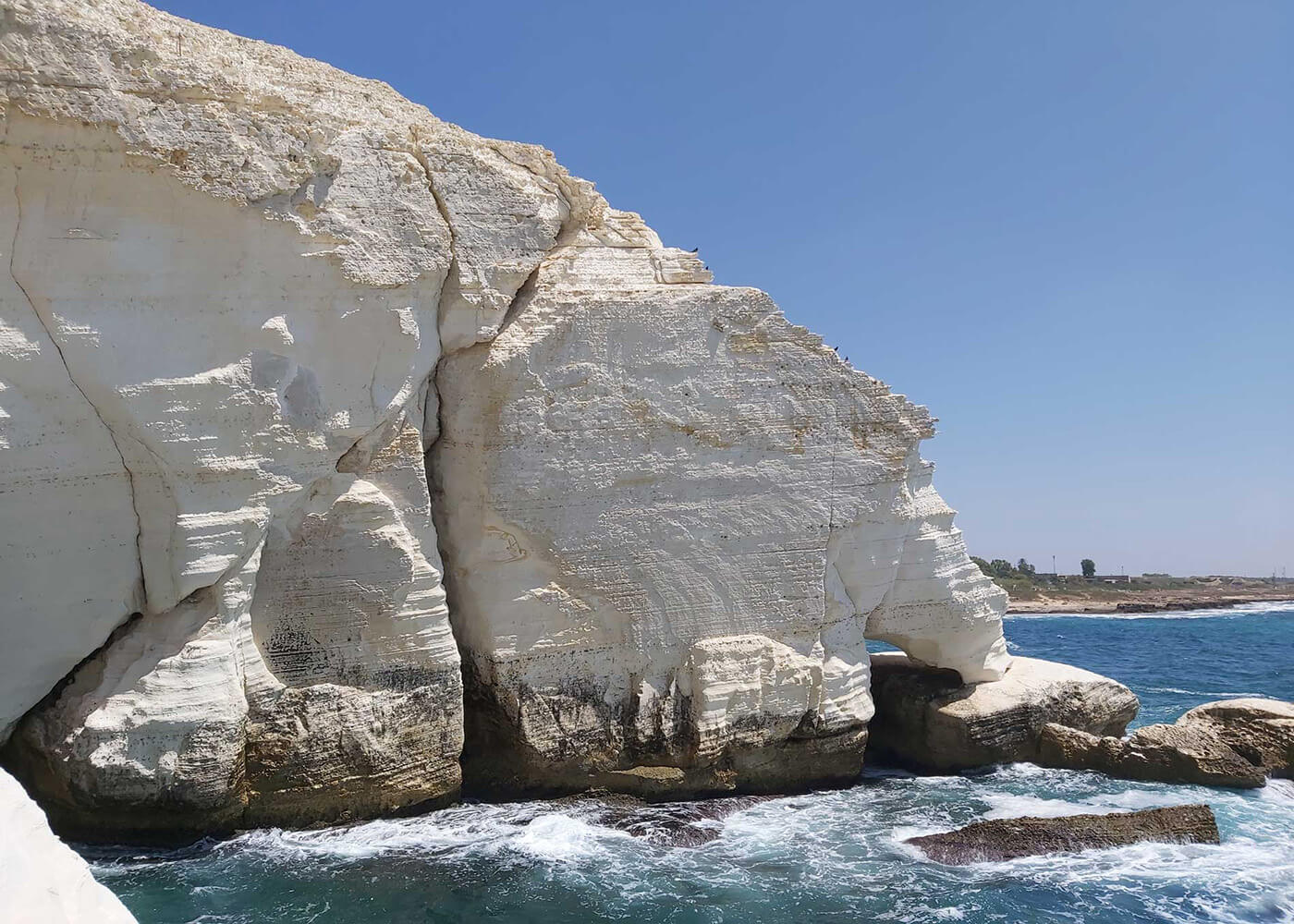Geographic Overview
Rosh Hanikra, located on the northwest corner of Israel at the border between Israel and Lebanon, includes a unique white chalk cliff geological formation and a panoramic view of Haifa Bay, the hills of Galilee and the Mediterranean Sea. An associated network of grottoes and caves at Rosh Hanikra were formed by the sea wearing away the soft chalk rock over thousands of years.
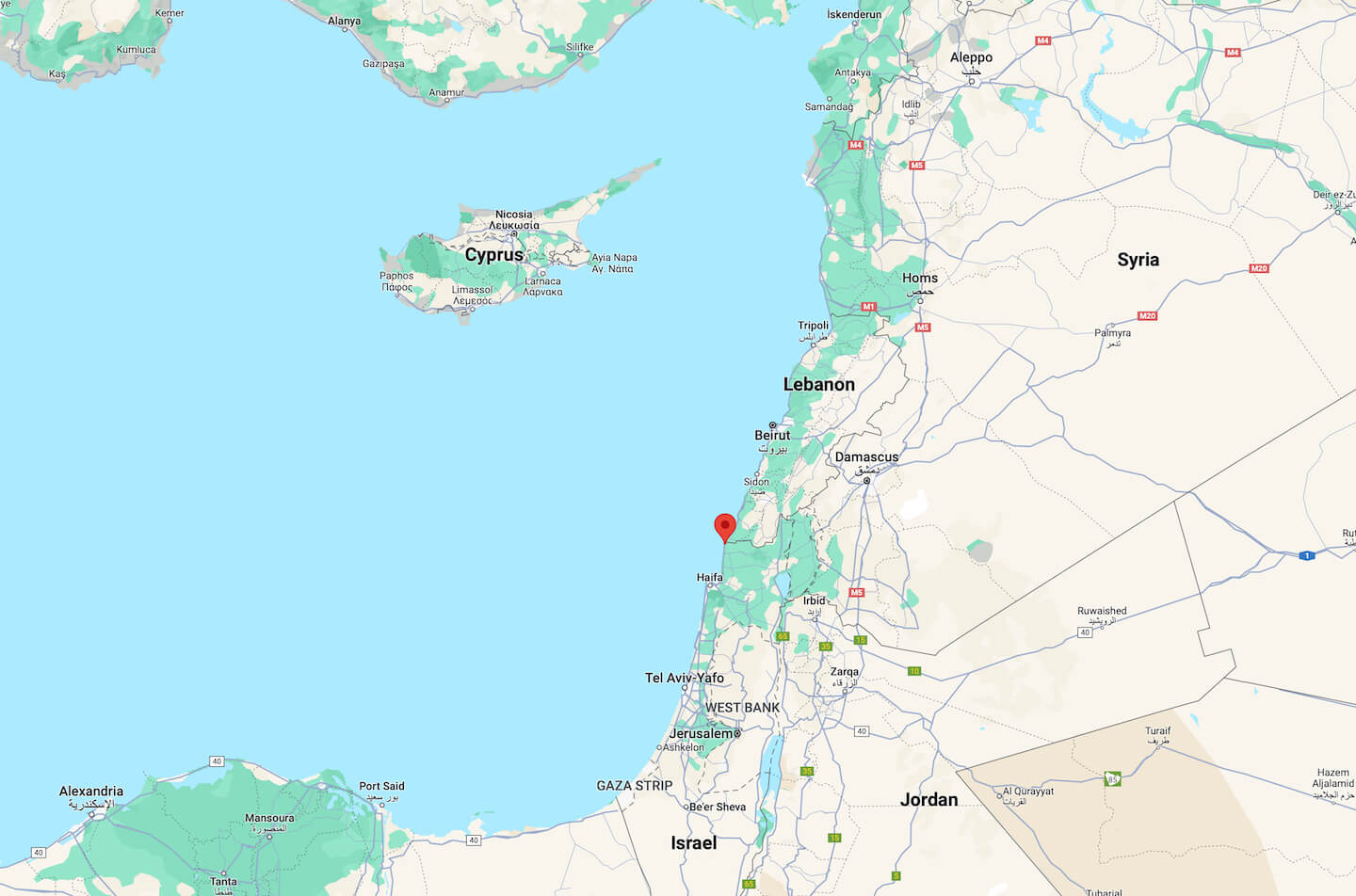
Sand Location
See where this sand sample was collected on Google Maps.
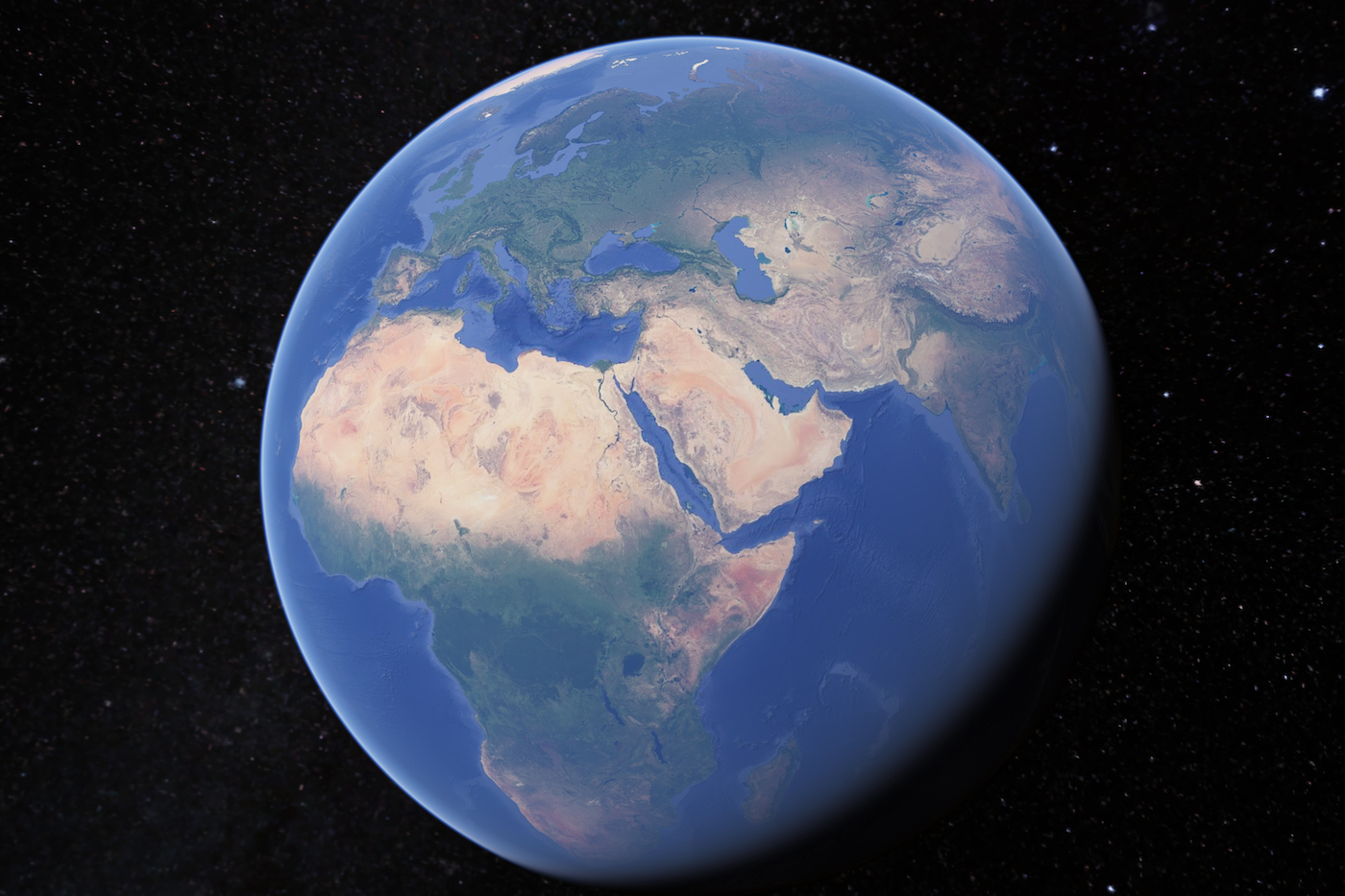
Virtual Sand Tour
Explore an interactive map of Rosh Hanikra on Google Earth.
Sand Gallery
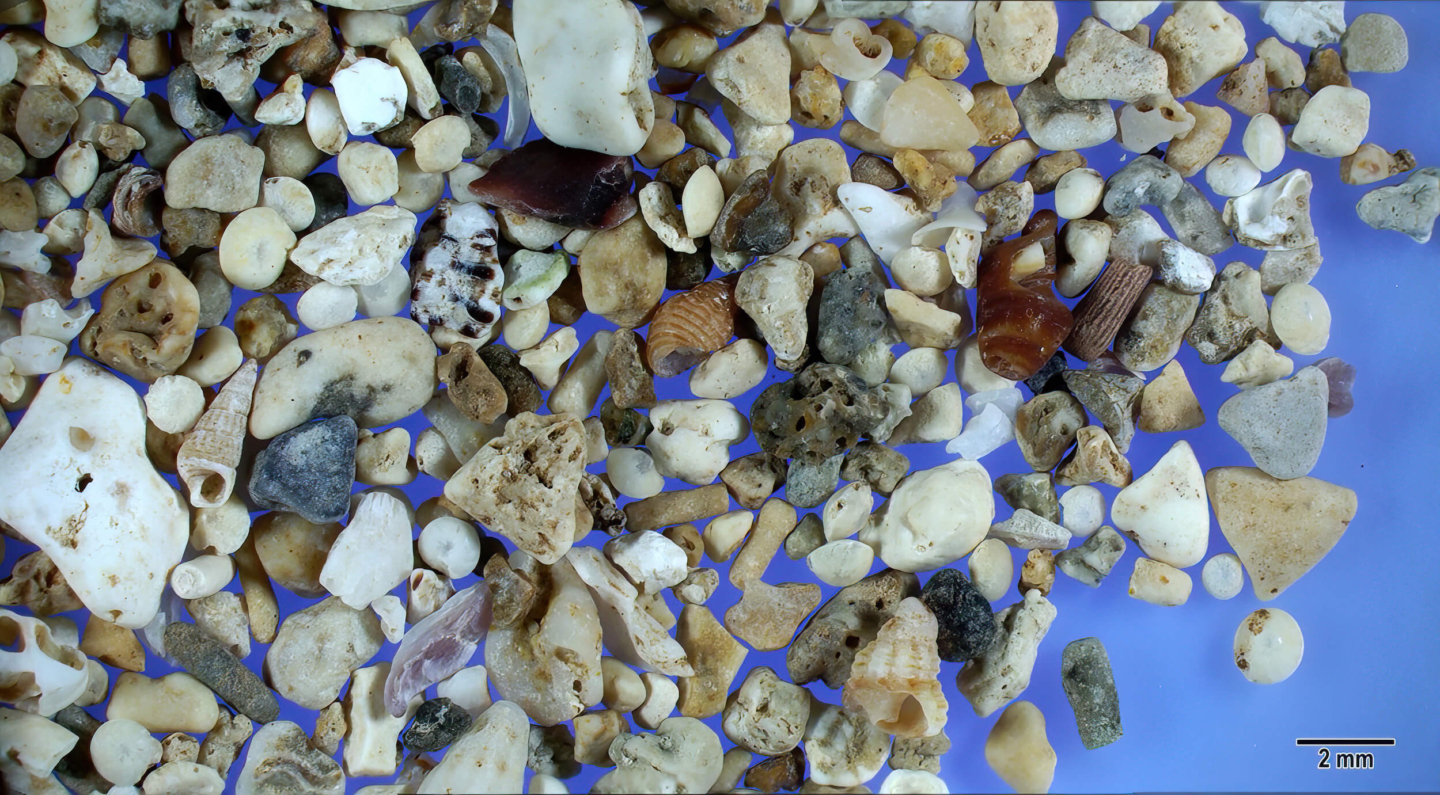
This sample of coarse sand is dominated by large biogenic sand grains. In this view there are intact gastropod shells (one near left edge, one with brown stripes in the center, and one ne at the bottom just to the right of center) plus a dark brown broken gastropod shell next to a purple-brown sea urchin spine fragment showing parallel grooves to the right of center. Barnacle bits, several worn foraminifera species, and occasional dark gray and black volcanic sand grains are also present in this sample.
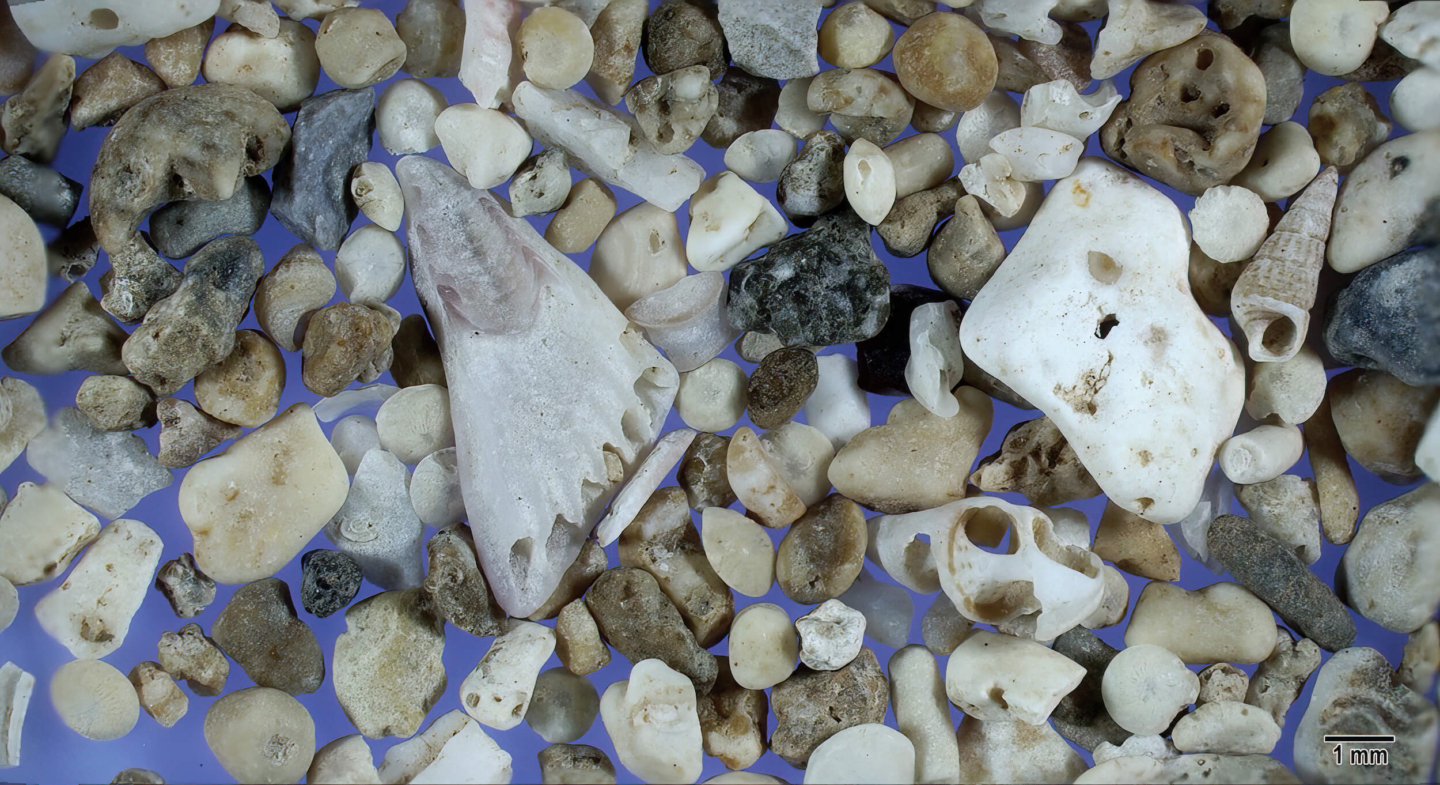
Two large off-white barnacle fragments on either sides of a centrally located mottled gray and black volcanic sand grain are present in this view. An intact gastropod shell is present near the middle right edge and several smoothly rounded forams are present in this sample.
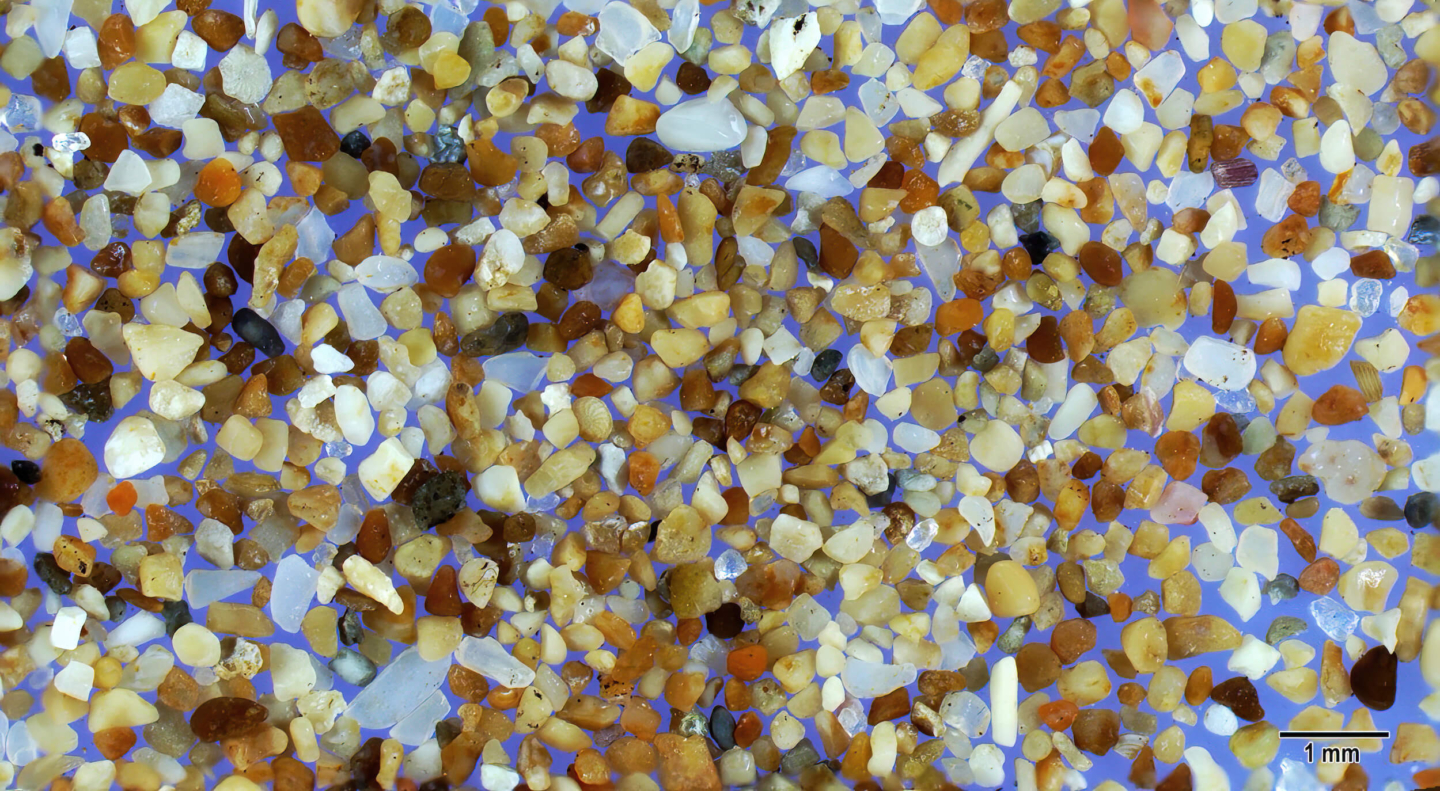
This low magnification of fine sand from near the waters’ edge shows a mixture of clear quartz plus white, cloudy white, tan and reddish brown fragments of marine shells along with black bits of volcanic sand grains.
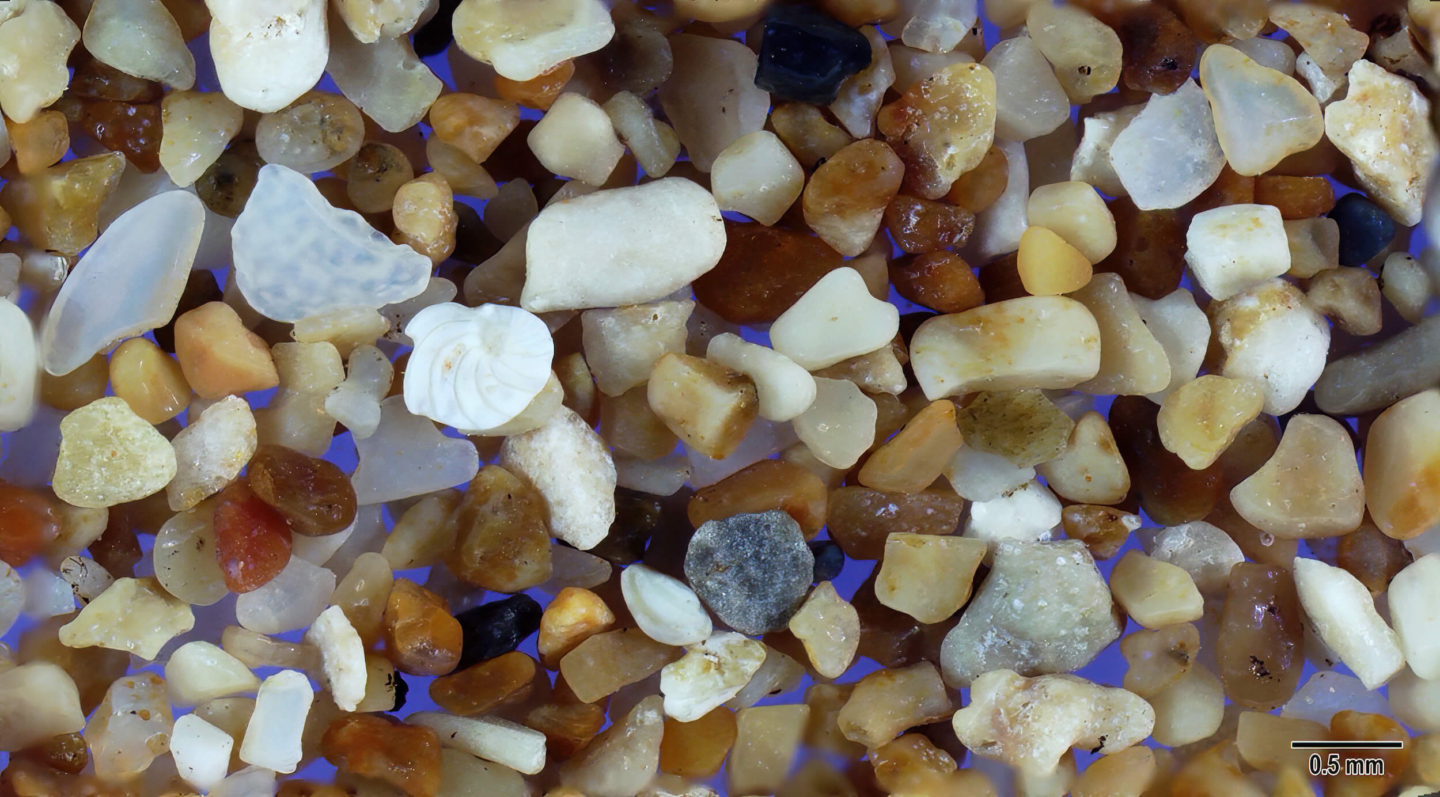
Two gray-white translucent mollusk fragments are present to the left of the centrally located and distinctly segmented white foram. Tan, brown, and reddish-brown smoothly worn fragments of marine shells are present in this sample along with occasional black volcanic sand grains.
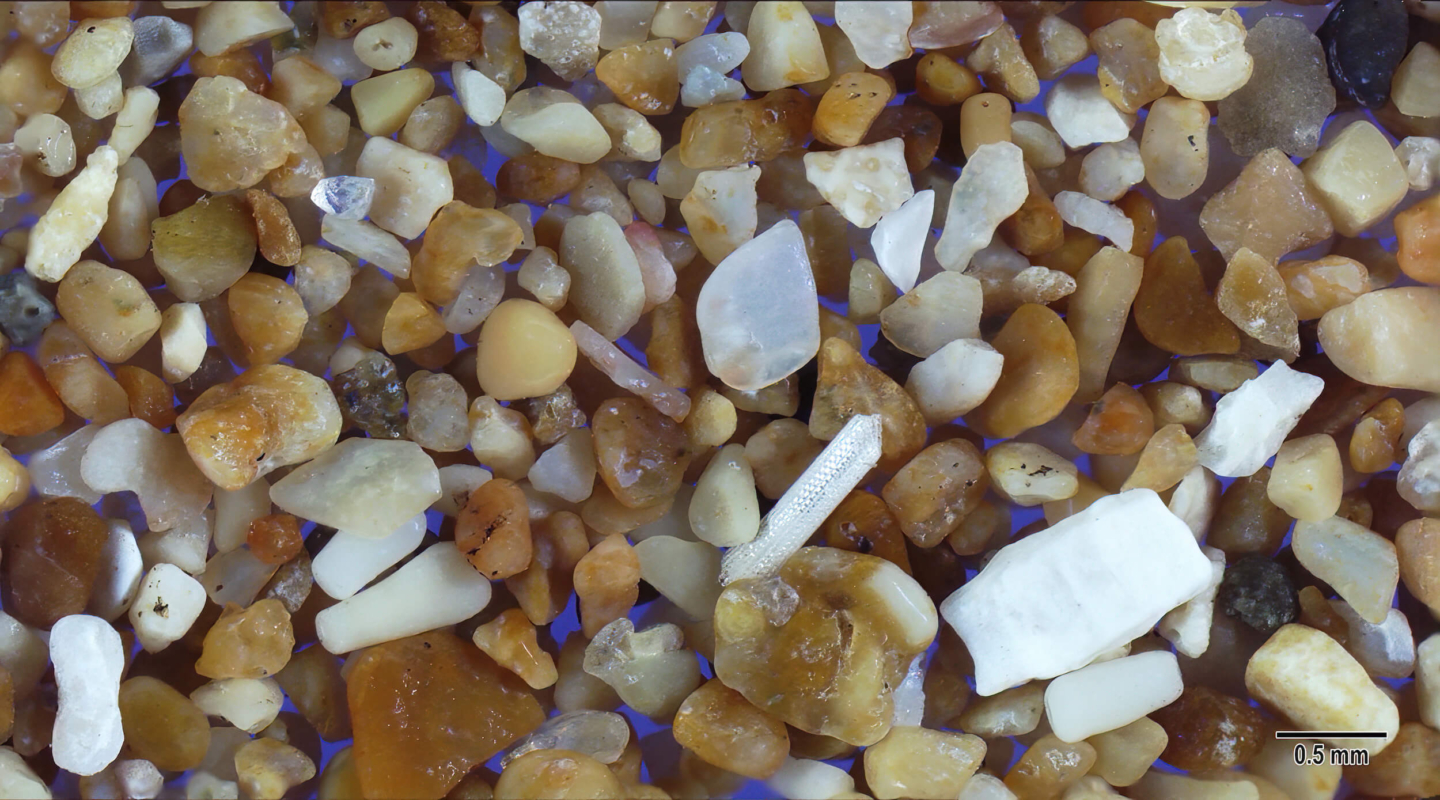
A centrally locate linear fragment of glistening sea urchin spine rests just above a mottled tan, brown and white shell fragment and below a centrally located off-white translucent triangular shell sand grain. The rectangular white sand grain at the lower right may be a small piece of smoothly worn barnacle.
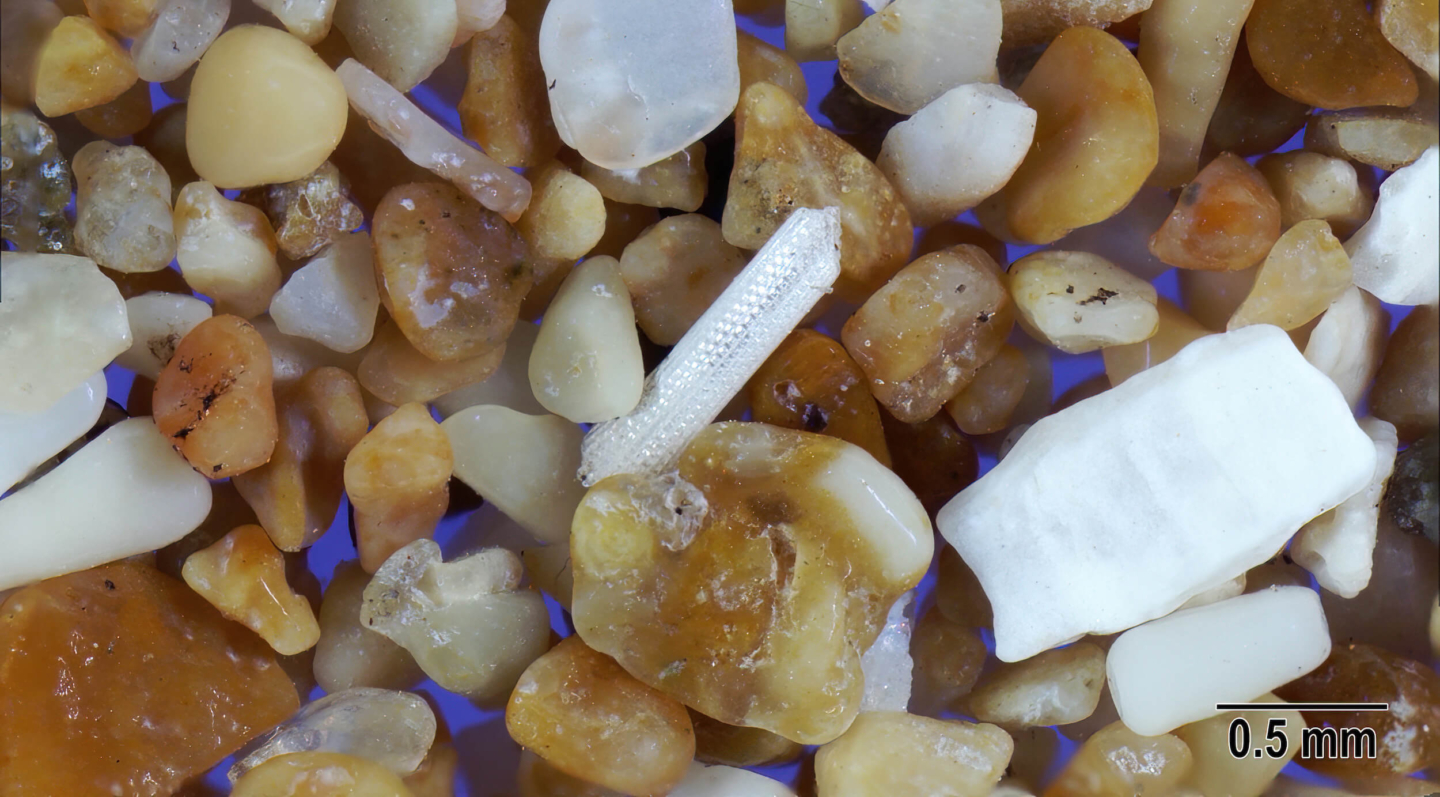
Higher magnification of image above.
